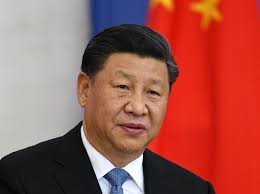The Chinese President calls for rejecting protectionism and enhancing multilateral cooperation during an Asian tour.

Chinese President Xi Jinping embarked on an official tour covering three countries in Southeast Asia, namely Vietnam, Malaysia, and Cambodia, from April 14 to 18. He emphasized the importance of avoiding protectionist policies and trade wars, affirming that such conflicts "produce no winners."
Xi Jinping started his visit in Vietnam on Monday, engaging in high-level meetings to enhance bilateral relations. In an article published by the Vietnamese Communist Party's newspaper, Nhan Dan, the Chinese President wrote: "Trade and customs wars will not lead to any victory, while protectionism leads to a dead end." He called for "firm defense of the multilateral trading system, stable global supply chains, and an international environment based on openness and cooperation."
He added that China and Vietnam should work together to strengthen "a multipolar world based on equality and justice, and comprehensive economic globalization that benefits all."
China is the third largest foreign investor in Vietnam after Singapore and South Korea, holding the top position in Cambodia and the third in Malaysia in terms of approved investments. In this context, Xi Jinping called for enhancing economic cooperation with Vietnam, stating: "China welcomes more high-quality Vietnamese products in its markets and encourages its companies to invest in Vietnam."
He also stressed the importance of expanding partnerships in vital areas such as supply chains, industries, as well as emerging sectors like 5G networks, artificial intelligence, and sustainable development.
The Chinese President urged the two countries to cooperate with global South nations "to protect the common interests of developing countries," highlighting the importance of unity in facing current global economic challenges.
This visit comes at a time when Vietnam is facing trade pressures from the United States, as the administration of former President Donald Trump imposed a 46% tariff on its imports, before suspending it for 90 days, with a basic tariff of 10% during this period.